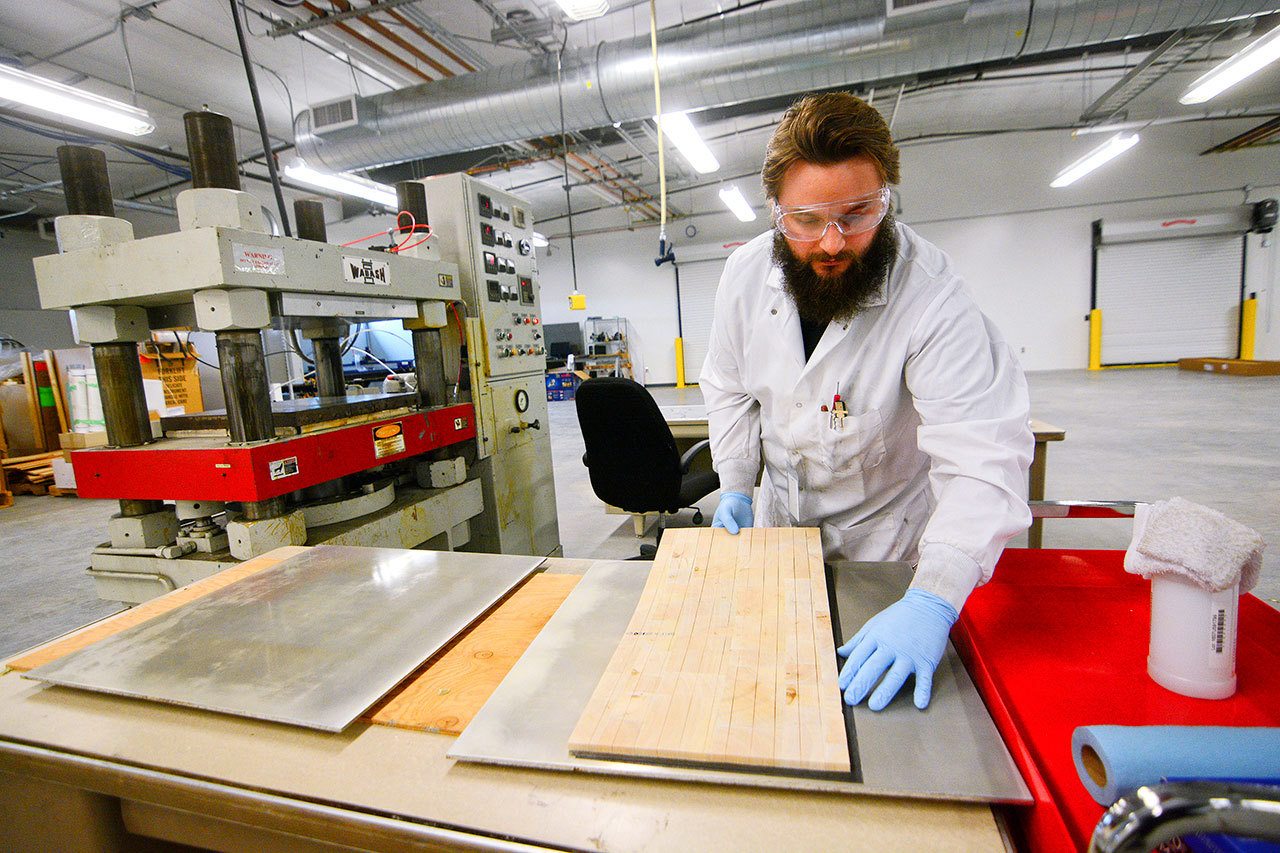PORT ANGELES — The Composite Recycling Technology Center’s board chairman has stepped down to become the new chief operations officer, the nonprofit announced Monday.
David Walter, CRTC’s new COO, said in a joint Clallam County and Port of Port Angeles meeting Monday he will be replaced as board chair by Anson Fatland, who is the associate vice president for innovation and research partnerships at Washington State University and has been on the CRTC board of directors since 2015.
Walter also told the two boards CRTC is still on track to announce its first product — a high-performance sporting good — in the coming months, but because of a non-disclosure agreement, there is little he can say at this point.
“I can’t talk about the product or the partner we’re looking at until we’ve signed the business agreement,” he said in an interview after the meeting. “As soon as we get that done we’ll be able to roll that out and let people know.”
The goal is to have that agreement signed within the next month, he said.
What he made clear was the CRTC’s strategy for distributing the product, which includes working with a single vendor to sell the product, rather than distributing to many vendors at once, Walter said.
“Any time you try to come into a market space, it pays to come with someone that’s already there,” he said. “That’s why we think having one channel is the best move.”
How CRTC plans to distribute future products has yet to be decided, he said. For now, the nonprofit is focusing on rolling out the first product.
As the center works on rolling out its first product, it will dip into a negative cashflow toward the end of the year.
Currently the CRTC has about $174,000 and expects to drop to about $140,000 by the end of the year.
The release of the product should boost the CRTC back to a positive cashflow though, Walter said.
“Launching the first product is absolutely critical,” he said.
The CRTC recently earned a $1.73 million state grant from the state Department of Commerce, allowing it to purchase and install equipment to recycle carbon fiber scrap from the aerospace industry.
Production is expected to begin by the end of the year, creating more than 20 jobs by the end of 2017, officials have said. The grant was made possible by matching funds provided by the port through a series of Economic Development Services Agreements with the CRTC.
“This grant is one of the last pieces of the puzzle to enable CRTC to become the source of new jobs and economic development for our community and county,” said Bob Larsen, CEO. “CRTC is now poised to accelerate its production plans and increase the number of jobs it creates in the coming year.”
In July, it was announced that an agreement established the Composite Recycling Technology Center as a partner and West Coast satellite location for the Institute for Advanced Composites Manufacturing Innovation of Tennessee, and allows Peninsula College to expand its capacity to train the composites manufacturing workforce.
The CRTC was called the world’s first facility to develop carbon fiber composite scrap materials into products that can be used in the automotive, energy and recreational industries.
________
Reporter Jesse Major can be reached at 360-452-2345, ext. 56250, or at jmajor@peninsuladailynews.com.

